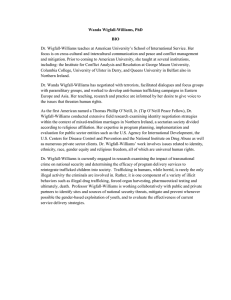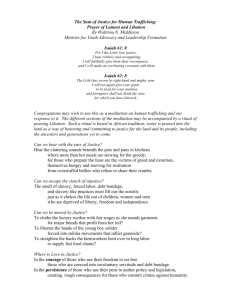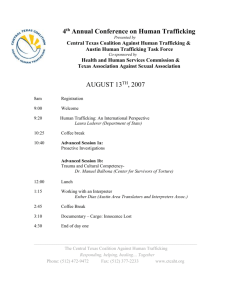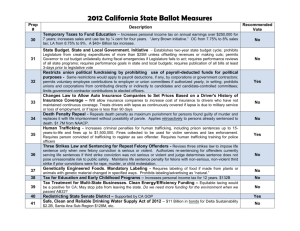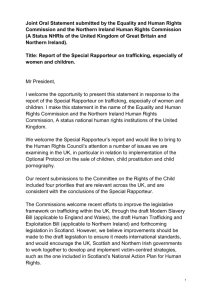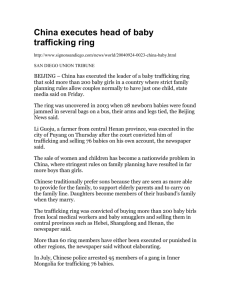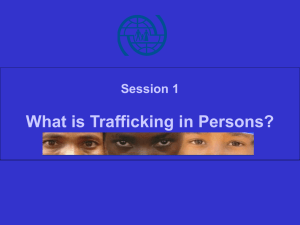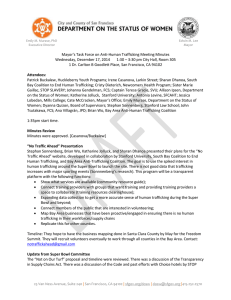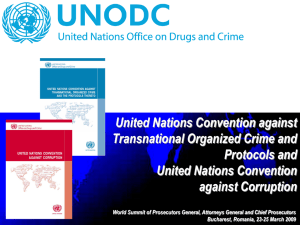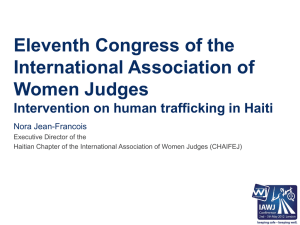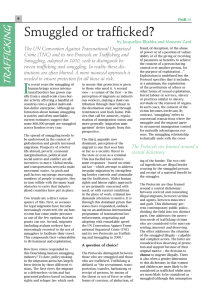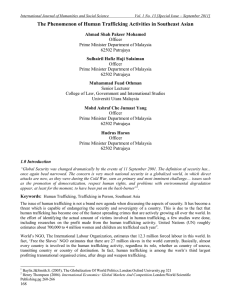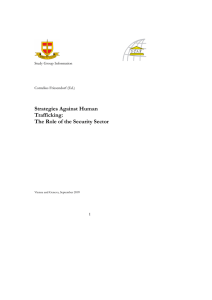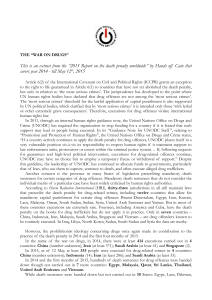Implications of Arizona*s SB1372 Anti
advertisement
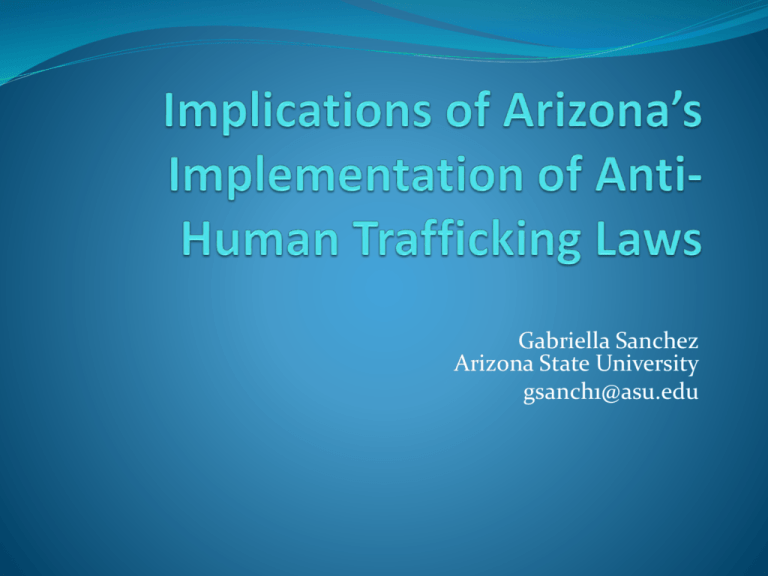
Gabriella Sanchez Arizona State University gsanch1@asu.edu Agenda Arizona’s Location and Geography Anti-Human Trafficking Law Background Local Human Smuggling Operations and their transformation TVPA and role of local religious organizations Local Border Security Concerns Anti-Human Trafficking law Implications No convictions on Trafficking Conspiracy Charges Racial Profiling Lack of expedited access to justice US Mexico Border Geography Arizona Sonora Border Maricopa County Anti-Human Trafficking Law, SB1372 Local Human Smuggling Operations TVPA and role of Local Religious Organizations ALERT Religious Rights Efforts Local Border Security Concerns Smugglers as Increasingly violent Ties between drug and human smuggling operations Overall concerns over growing undocumented population from Mexico Coupling of religious rights’ moral concerns with national security “demands” SB 1372 (cont.) Signed in 2005 Defines sexual trafficking of minors and attempted sex trafficking of minors as class 2 felonies (prison eligible) Trafficking of persons for forced labor or services Court’s obligation to order victim’s compensation Amendment in 2009, introduces trafficking as deception, force or coercion. Implications No sex trafficking convictions Racial Profiling Abuse of power Lack of Expedited Access to Justice Conspiracy charges against undocumented immigrants for smuggling NGOs funded under TVPA not providing contractually stipulated services Determination of victim status, highly discretionary Conclusions No actual resolution of child prostitution or sex trafficking (In fact, never proved) Criminalization of undocumented immigrants Increasing pressures on detention facilities and upon law enforcement Reinforcement of racial and cultural stereotypes of Mexican undocumented immigrants as criminal Lack of organization’s accountability. Actual victims whereabouts, unknown.
